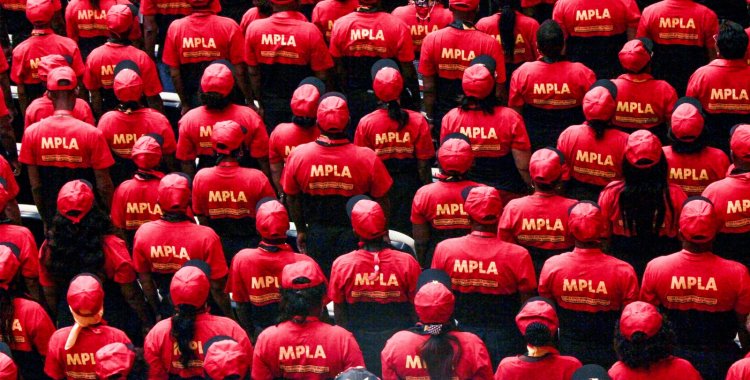The president of the CNE, Manuel Pereira da Silva, took office this Monday at the National Assembly, amid protests from deputies from the parliamentary group of the National Union for the Total Independence of Angola (UNITA), who left the room during the ceremony.
Speaking to journalists, the leader of the UNITA parliamentary group, Liberty Chiaka, said that the regulation that served as a basis for the Superior Council of the Judiciary (CSMJ) to choose the president of the CNE "is riddled with illegalities".
"There are rules that unfortunately seek to privilege a certain candidate," he said, adding that the UNITA parliamentary group submitted an impeachment process to the Constitutional Court "to declare the regulation unconstitutional and consequently annul the competition," through which the president of the CNE was reelected.
According to Liberty Chiaka, the National Assembly was informed that two processes are underway at the Constitutional Court, one regarding the contest that elected the president of the CNE and another regarding the composition of the National Electoral Commission.
"The National Assembly maintained its position, so the parliamentary group filed a precautionary measure with the Constitutional Court last Wednesday", explained the deputy, highlighting that, on Thursday, the Constitutional Court notified the UNITA parliamentary group and the National Assembly about the rejection of the request, as it understood that the parliament "is not a legitimate party to this action" in which the defendant is the Superior Council of the Judiciary.
He accepted, however, the second part which refers to the nominal designation of the members of the National Electoral Commission. "Regardless of the Court's position, it recognized that there is indeed a process underway at the Constitutional Court," he stressed.
In this sense, the UNITA parliamentary group appealed to parliament "to consider not carrying out the inauguration", highlighting that the president of the CNE is not elected by the National Assembly, but by a body, whose merits of the process are not known, stressing that "there is a history of several illegalities".
"Angolans know that the president of the CNE does not meet the ethical, moral or legal requirements to hold office, therefore, despite the action not yet having been judged by the Constitutional Court (...) it is important that the bodies have a vision, an attitude of consideration, of prudence, when we are faced with situations that involve rights, guarantees, above all involving the credibility of the National Electoral Commission and the entire electoral process, for this reason we decided to abandon the session, not to legitimize the act of inauguration", he declared.
In turn, the deputy of the parliamentary group of the Popular Movement for the Liberation of Angola (MPLA) and president of the Parliament's Constitutional and Legal Affairs Committee, António Paulo, said that the choice of the president of the National Electoral Commission and his inauguration by the National Assembly "results from the law".
"Therefore, I do not see where the question of the legitimacy of the National Assembly to swear in the president of the CNE arises. Now, there are other issues that have to do with the process of the competition for choosing the president of the CNE, but this process takes place in the Superior Council of the Judiciary, not here in the National Assembly", he stressed.
António Paulo highlighted that, in law, precautionary measures are filed as a means to prevent procedural delays from harming the main action.
As the National Assembly understands that this main action does not have suspensive effects, but rather "merely devolutive", it continued the process of choosing the commissioners, he added.







